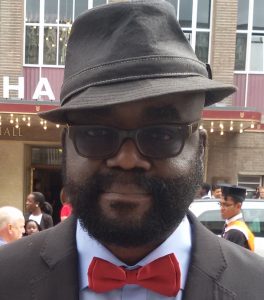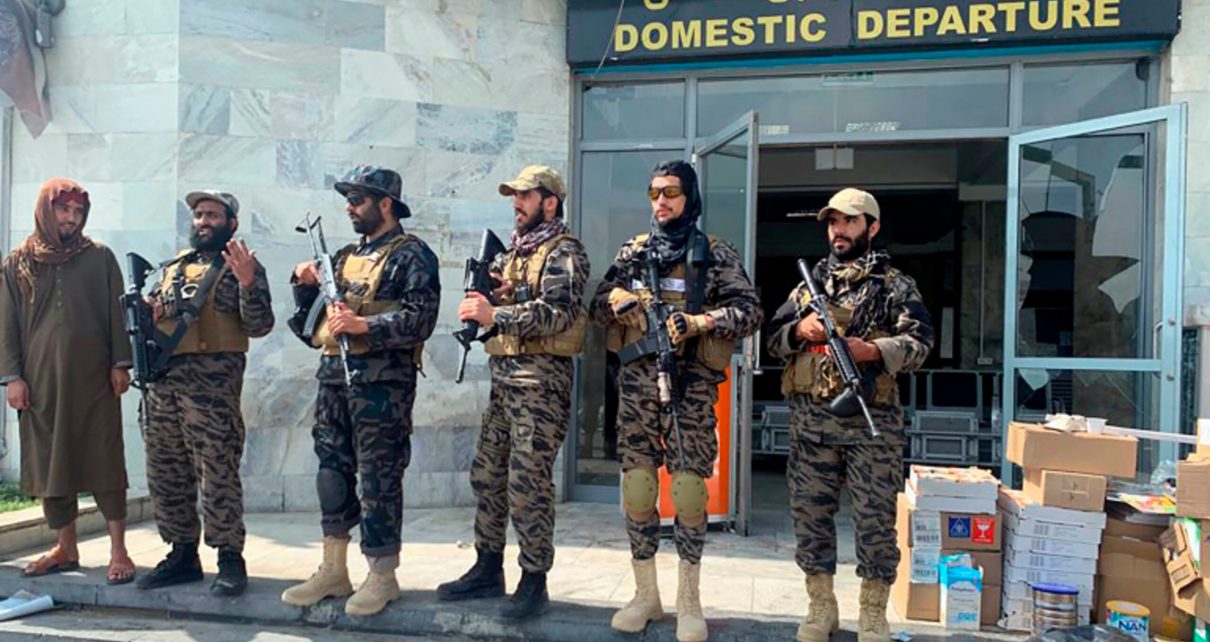
ON THE D-DAY OF FINAL DEPARTURE of US forces from Afghanistan, there was ululation and dancing in the streets. It was a celebration of several Eids all rolled into one — Eid-el-Victory, my friend called it. After spending well over $2 billion on the Afghanistan misadventure, America was finally cutting its losses and returning to base.
Hatred of the US was the unifying factor of all the disparate jihadist groups celebrating. These are people who, due to doctrinal and other differences, can’t stand the sight of each other. In normal circumstances, they would be daggers drawn against each other. A Taliban would consider it a duty to kill an Islamic State member who, were the table turned, would decapitate the Taliban without second thoughts. But the humiliation of the US and its allies temporarily united them in celebration.
As the Taliban made a show of wearing the uniforms inherited from the Americans, they made victory signs and boasted that they had defeated mighty America. It was feared in many western circles that the coming to power of the Taliban in Afghanistan was just the tonic needed by many jihadist or extremist groups all over the world.
One of the first things the Taliban did in Kabul was to seize the jailed leader of Islamic State in South Asia and kill him. Militants freely shared sweets on the streets of Somalia while those in Yemen set off fireworks. Down with the infidels who were poking their pointed noses into the affairs of Muslim states, they sang. No further evidence was needed that God was on their side. Allahu Akbar!
But that song was to change on the day after the withdrawal. Apparently, the Taliban celebrated too soon. By the following morning when they had taken stock of the arms and armaments they inherited from the Americans, they cried out that they had been tricked into thinking they would, as inheritors of political power in Afghanistan, inherit the war arsenal assembled by the US. The US had a force of nearly 6,000 troops in control of Kabul airport when the airlift began. They had, among other equipment, 70 MRAP armoured tactical vehicles which they demilitarised before departing.
The 73 aircraft that were already at Hamid Karzai International Airport similarly rendered useless by the Americans. “Those aircraft will never fly again”, said General Kenneth McKenzie, head of the US Central Command”; they’ll never be able to be operated by anyone,” The high-tech rocket defense system (C-RAM system — counter rocket, artillery, and mortar) which the US forces used in defending Kabul airport during their occupation was technically castrated. And to underline that the demilitarisation of the armaments was a carefully calculated move, McKenzie added: “We elected to keep those systems in operation up until the very last minute before the last US aircraft left”.
Post Afghanistan Implications For Nigeria
A lot of criticism has trailed the withdrawal with some lampooning President Biden for lacking balls. I think they are mistaken. A war that has ‘eaten’ four US presidents cannot be allowed to go on forever in the hope that someday, the Taliban will abandon its raison d’être of installing a government operating on their own strict interpretation of Islam. Those who think that the Taliban can be psychologically tweaked to become a ‘freedom loving infidel’, are wrong.Being the policeman of the world has drawn the US back in terms of infrastructural development. Funds that could otherwise have been committed towards making the country a better place and enhancing its status as a centre of civilisation have been blown away in ill-advised wars, physical occupation and other acts of armed meddlesomeness. Meanwhile, America’s competitors on the global stage are making great advances in many fields.
According to the 2020 Report of WorldAtlas, the United States lags behind eight other countries in infrastructure. Hong Kong, Singapore and The Netherlands are the best three, followed by Japan, UAE, Switzerland, France and Korea. The US is ranked ninth.
China has one or two things to teach the world about socio-economic engineering. According to the World Bank, China has lifted more than 850 million people out of extreme poverty. The country’s poverty rate fell from 88 percent in 1981 to 0.7 percent in 2015. Unlike the US, the physical occupation of other countries is not a favoured tactic of China’s which prefers to use soft power based on incentives, loans and partnerships.
The US has been playing Superman at the expense of its own people. This point comes into sharper relief when one considers that American taxpayers spent $6.4 trillion on post-9/11 wars and military action in the Middle East and Asia. According to the Watson Institute of International and Public Affairs at Brown University, that amount was $2 trillion more than the entire federal government spending during the 2019 fiscal year.
Money aside, the report also found that more than 801,000 people (335,000 of them civilians) have died as a direct result of fighting. In addition, 21 million people have been reduced to internally displaced persons in their own country due to no fault of theirs.
With the advantage of hindsight, it was foolhardy for the US to try to plant its own ideology and impose its own will on a foreign soil. The Afghan Army for which so much sacrifice had been made was so disloyal that immediately the date of US withdrawal was announced they were in secret contact with the Taliban. Tribal politics is so different from the kind of international politics at which the US and its allies excel. The Afghans of various tribes agreed that there would be no fighting and that the US was the common enemy. The world was shocked when the Taliban simply ‘strolled’ into town to take over the government without as much as a skirmish.
And some people still say Americans should continue putting their lives on the line for such disloyal people and their corrupt leaders?
What President Biden has done may not look too pretty today, but I think history will be kind to him. There is no better time to make a good move than the present moment. The more US troops remained in Afghanistan, the more American lives would be lost; the more money would go down the drain; more widows and orphans would be created. And, perhaps, more enemies would be made.
It may be tempting to argue that continuing with the occupation of Afghanistan was essentially in the American character, considering that US spent about $4 trillion on the second World War
But after every nightmare comes the dawn of wakefulness. Cowboy diplomacy may have worked in times past. These times demand a different set of tools. And there is no “one size fits all” when it comes to international engagement. Biden has read the tarot right.
His argument: “For those asking for a third decade of war, I ask, what is the vital national interest? In my view we only have one: to make sure Afghanistan can never again be used to launch an attack on our homeland.”
The United Nations Security Council has passed a resolution itemising what the international community expects the Taliban to deliver on moving forward — freedom of travel, freedom to leave, etc. The US president has said that although Talibans have been making platitudinous statements, they will, rather, be judged by their actions.
Now that the Talibans are in power, it is hoped that they will do things differently, even if they insist, as they indeed will do, on imposing their strict interpretation of Islam on the country. It is their country, after all. The world will concede that much. But if the new regime decides to go to bed with international terrorism again, then thunder may strike the same place again, only that future thunders will only be time-bound.
It is better to get out of a hole in an undignifying pose than to continue digging oneself into self-internment. Ask those who indulge in open defecation in the bush — when you stay long on the mound, all tribes of flies will claim their right to mess with you.
In the long run, it is better for the US to invest its money on its people and infrastructure than to spend it pretending to pacify unpacifiable tribes.
- Wole Olaoye is a public relations practitioner and a public affairs commentator and can be reached at wole.olaoye@gmail.com



